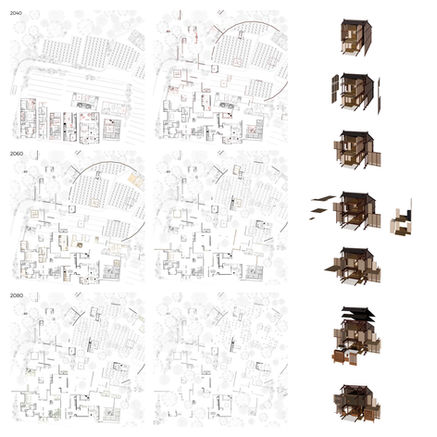
Back to:
Creation of a Humanist Ecology
Annan Zuo
Kyoto, Japan
2023
MPhil in Architecture and Urban Design (MAUD)
Categories
Climate, Informality
Humans’ tragic defect in ecology is their anthropocentric vision, the compulsion to exploit, violate and conquer. It is inevitable that human territories in a shrinking society are to be retaken over by nature, but it does not mean the gesture of our departure should still be anthropocentric – passive and indifferent.
This project experiments with a non-anthropocentric vision of architecture through transforming Fukakusa and Kanshuji – two districts between mountains in Kyoto that are undergoing land and property abandonment process – into a sanctuary for the Sika Deer population and vanishing local culture.
In the first phase (-2040), with shrinking communities still inhabited by the elderly, a well-functioning community is to be sustained through resident-led demolition and material reclamation processes. In the second phase (2040-2060), abandoned fields are to be reforested and managed; environmental hazards from abandoned properties will be reduced to the minimum with the implantation of purification systems and ecological workshops. In the third phase (2060-), when the entire district is emptied from human inhabitation, the original Satoyama landscape will be restored, and with the preservation of historical structures, traces left by humans are deconstructed, transformed and merged into nature.
